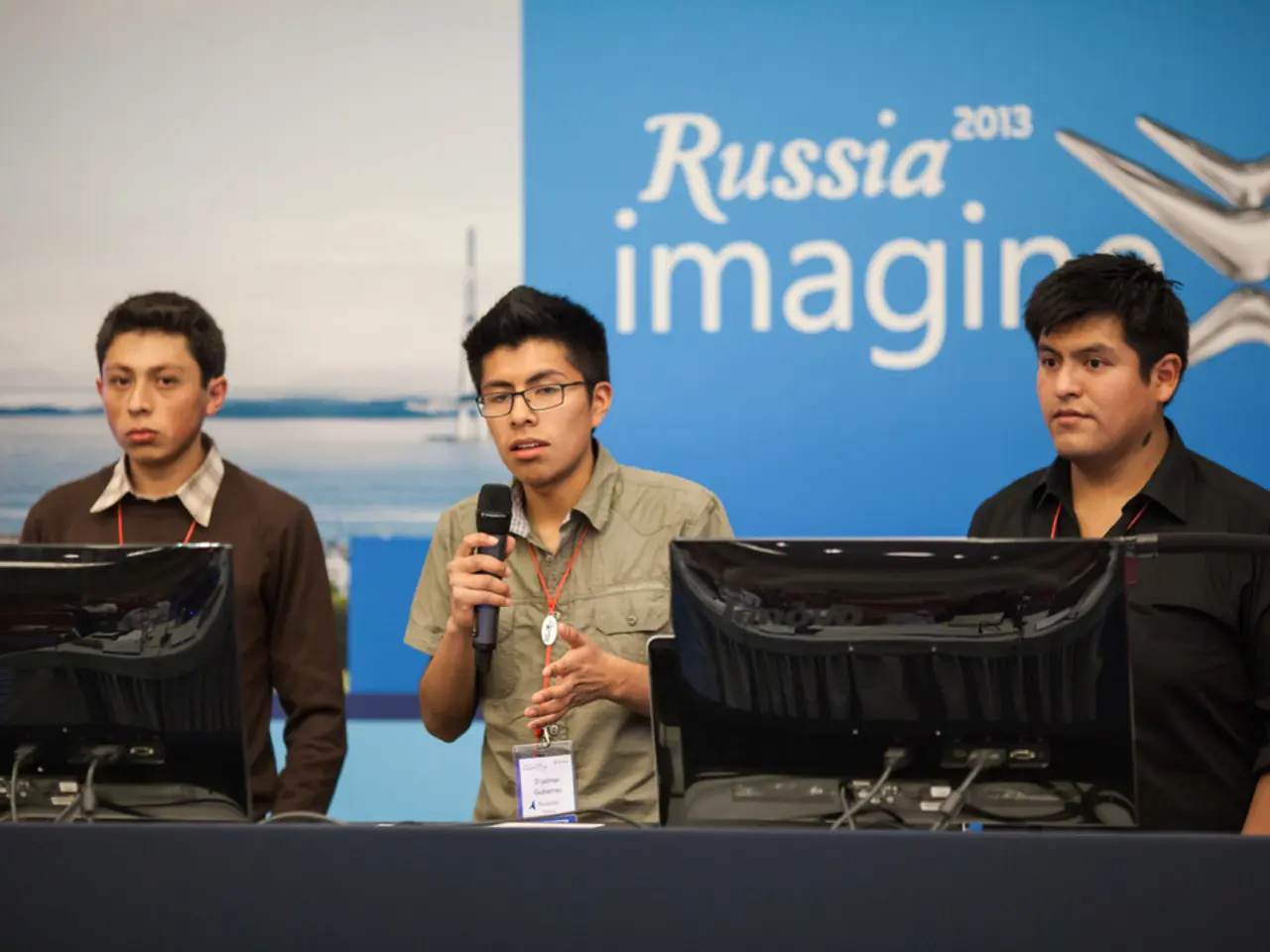Trump representative Witkoff conferences with Putin in Moscow preceding Ukraine war truce cut-off
The ongoing peace negotiations between Russia and Ukraine have reached a critical juncture, with no direct talks involving Ukraine scheduled yet. The latest status of these negotiations is tentative and complicated, as the world waits for a potential summit between U.S. President Donald Trump and Russian President Vladimir Putin, set for August 15, 2025, in Alaska.
The escalating strikes by Russia on civilian areas in Ukraine have not been successful in ending the three-year war. Despite Trump's recent urgings, Putin has not relented in his attacks on civilian areas in Ukraine, causing increasing frustration in Washington.
The planned summit aims to discuss ending the war in Ukraine, but Ukrainian President Volodymyr Zelensky has stated that there will be no peace without Ukraine's direct involvement. Any deal made without Kyiv, he warns, would achieve nothing. European leaders have also expressed doubts about the summit's potential success without Ukraine at the table and have reaffirmed their commitment to Ukraine's territorial integrity.
Within Russia, key officials emphasize that Russia will not accept a ceasefire or truce that does not meet Putin's original war aims of "demilitarizing" and "denazifying" Ukraine and securing control over occupied regions such as Luhansk, Donetsk, Zaporizhia, and Kherson, while also potentially creating buffer zones around others. This suggests Russia remains committed to extensive military and political objectives, regardless of negotiation overtures.
On the Ukrainian side, popular support for continuing the war until total victory has declined significantly. A recent Gallup poll found that 69% of Ukrainians favor negotiating an end to the war as soon as possible, a reversal from strong early war support for full victory. President Zelensky has signaled some openness to direct talks with Putin but stresses the importance of Ukrainian participation and rejecting territorial concessions.
U.S. President Trump is reportedly attempting to pressure the Kremlin with the threat of sanctions as part of the negotiation leverage. However, the exact nature of the economic penalties the White House has threatened to impose on Russia remains unspecified. Given the long-standing imposition of Western sanctions on Russia since 2022, any new economic penalties likely relate to further targeted sanctions designed to extract concessions.
As the deadline set by Trump for Putin ends on Friday, the world watches with bated breath, hoping for a resolution to this long-standing conflict. The negotiations are complex and fraught, with Russia maintaining maximalist demands, Ukraine insisting on participation and territorial integrity, and the U.S. and European allies supporting Ukraine's position. Economic penalties remain a tool in the background but without clear new developments outlined in the current information.
The ongoing military actions by Russia in Ukraine, part of the broader war-and-conflicts category, have led to increasing politics surrounding the issue, as world leaders attempt to negotiate an end to the conflict. The general-news narrative is complicated, with Russia's demands for territorial control and Ukraine's insistence on direct involvement creating a standoff, even as U.S. President Trump threatens economic sanctions to pressure the Kremlin.




